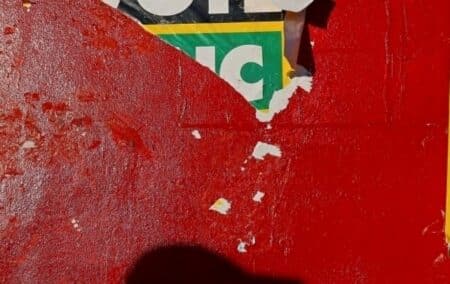Instinctively, I’ve always thought it mistaken to think that voters are foolish even when it seems obvious that their political choices do them harm instead of good.
If the record suggests that I might be wrong, it is also true that applying a rationality test invariably fails to account for habits of mind – ways of doing things, like voting, that may be habitual; not wholly involuntary, but shaped by one or another kind of continuity … tradition, familiarity, custom and, to a greater or lesser extent (and perhaps increasingly, these days), self-identity.
Factor these elements into the equation, and it does seem that voters will go along with things that might well be bad for them, and for long enough for the harm to become perilous – as long as they are uncertain about what a better alternative might be.
This much can perhaps be read in the latest research from the Centre for Risk Analysis (CRA) that shows, for instance, that while a combined 80.5% of respondents (in a commissioned survey) thought their lives had stagnated or worsened over the past five years, President Cyril Ramaphosa is the only South African political leader to earn a net favourability score (+39.6%) – against the Democratic Alliance’s John Steenhuisen (net score of -16.5%) and the Economic Freedom Fighters’ leader, Julius Malema (-16.7%).
Of course, it’s natural – as the CRA points out – for an incumbent president, with the high visibility that comes with the job, to have the advantage of being widely familiar and to have opportunities his rivals lack to present a picture of authority and so instil in voters a higher level of confidence in his undertakings and promises.
Still, in 2021, it does seem remarkable that, as the CRA argues, the ‘president’s popularity seems impervious to the sorry state of the nation or the party which he leads’.
The sorry state is most vivid, and most palpable in the ‘lived experience’, at municipal level, and yet polls show the failing incumbents well ahead – if, this time round, quite likely dropping below the critical 50% margin.
How bad does it have to get, one may wonder?
Bad for a century
Yet, I think that’s the wrong question. For most South Africans, it’s been bad for a century – and whom can they trust to make it any different?
Almost exactly two years ago, I began my Daily Friend contribution (For crying out loud) with the idea that ‘South Africans have a sound grasp of what matters, and what must be done – but our politicians just won’t listen.’
I went on:
‘The real South African miracle today – beyond the sheer feat of our enduring so many wholly unnecessary hardships – is not merely that we continue to believe in something better, but that most of us believe it is a sum of the same things.
‘We at the IRR know this because we have tracked public opinion on what most people think really matters, and the figures reveal a remarkable degree of unanimity.’
That piece drew on data from the IRR’s 2018 field survey that showed that most people were most interested in more jobs and better education, and that ‘88% of all South Africans – and 86% of black respondents – agree that “the different races need each other for progress and there should be full opportunity for people of all races”’.
Subsequent surveys – and not only IRR ones – have shown much the same.
Given that the ANC has demonstrated nil serious interest in tackling the reforms needed to match popular desires, how can it be that the ruling party is still politically dominant? And are we wasting our time investing energy in crafting alternatives when it seems that nothing’s going to change?
In fact, the basis of both propositions is weak: the ANC’s power is waning (it has not won 60% or more of the vote since 2014; colleague Marius Roodt recently examined the party’s declining performance in more detail), and the arguments in favour of alternatives to its failing policies are bolder today than they were at the time of the last local government elections in 2016.
A different way
The burden of responsibility, the onus to make a better case for a different way of doing things, rests on those of us who are convinced that South Africa can succeed in being simultaneously fairer and more prosperous.
To think it’s not worth the effort would only be to surrender to cynicism: the challenge is defined less by the obduracy and self-serving impulses of the ruling elite than by the lingering, perhaps habitual, uncertainty of ordinary people. It would be wrong, the lesson seems to be, to think they are foolish for being insufficiently convinced.
If you like what you have just read, support the Daily Friend

